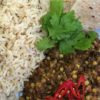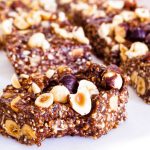
Healthy Lifestyle
The Essential Minerals of Life, Are you getting enough?
IMAGE: The mineral Sagenite Agate; a variety of agate that takes a crystallised needle form.
A diet rich in minerals is essential for a strong body and good vitality.
Here are 5 favourites that are important for good health.
Magnesium is an indispensable natural mineral involved in over 300 biochemical reactions in the body. This is huge! It is used to regulate blood pressure and blood sugar, to synthesise proteins, regulate cholesterol, maintain bone integrity and reduce muscle tension. It is also the mineral of choice to support stress and anxiety conditions for the body.
Foods that are high in Magnesium include nuts and seeds, dark leafy greens, pumpkin seeds, buckwheat, barley, brown rice, quinoa and millet. The recommended daily intake is 400-600 mg per day which could look like a healthy handful of nuts and seeds, a bowl of buckwheat or quinoa porridge for breakfast and a simple serving of green leafy vegetables with dinner.
Potassium is an alkaline mineral found in most natural foods; however the consumption of caffeine, sodium, alcohol and many medications promote potassium loss and will lead to poor health if they are taken regularly. Potassium is a major nutrient for the heart as it directly controls the contraction of the heart muscles, regulates blood pressure and can reduce the risk of stroke. One baked potato contains a whopping 926 mg of potassium, ½ cup of raisins has 600mg, ½ cup cooked lima beans has almost 500 mg, with a medium sized banana and ½ cup cooked spinach equally 420 mg. The recommended daily intake of potassium is approx 4.7 grams.
Zinc deficiency is rather common these days and considering this mineral is crucial to good health, it is important you ensure you are getting adequate amounts through your diet. Zinc is needed for a robust immune system, healing wounds as well as helping to keep illness and food sensitivities at bay. Zinc also plays a key role in DNA synthesis, cell division, cell growth, proper thyroid hormone production and a healthy libido. Foods containing the highest levels of zinc include red meat, chicken and fish with a serving of salmon having up to 7mg. Most grains, seeds and legumes contain moderate levels with a cup of cooked black-eyed beans containing 3 mg and a ¼ cup of pumpkin seeds having 1.6 mg. The recommended daily intake for zinc is between 17-20 mg, however certain conditions such as rapid growth in children and adolescence and times of illness and stress require a higher intake of Zinc.
Healthy zinc levels in your day might look like a handful of your favourite nuts or seeds, a serving of vege bean casserole, or a piece of grilled salmon with green leafy vegetables.
Iron is another mineral critical for the immune system. It transports oxygen around the body and is involved in countless enzyme reactions. Iron is the second most abundant metal in the earth’s crust, however it is also the most common nutrient deficiency in the world. When it is low it can cause fatigue, light-headedness, foggy thinking, anxiety and depression and there are many factors that can lower iron levels including low stomach acid, poor kidney function, intestinal parasites and poor intestinal health. Also the tannins in tea and coffee will bind to the iron in our food and result in its speedy excretion. Iron is found in meat and plant foods with beef having 2.4 mg per 85 g and one cup of cooked chickpeas having 6.9 mg. Many other legumes are also a great source of iron, as is spinach, kale, dates and prunes.
This brings us to Calcium. A well known mineral that is essential for the structure and function of our bones and teeth but interestingly this alkaline nutrient has many other roles and is in fact the most abundant mineral in the body. Calcium is needed for heart health, muscle contraction, cell signaling and for the release of many of our natural brain chemicals. Dairy foods are a good source of calcium, as well as many plant foods such as nuts and seeds, spinach, kale, broccoli, rhubarb, soya beans and figs. Teff seed, which has become more popular in the past few years, has the highest amount of calcium of the all the seeds with approx 180 mg in just one cup. Another great source of calcium comes from the seaweed family with high levels being found in kelp, wakame, nori and dulse. The recommended daily intake for calcium is 1000 mg.
Cheers to having adequate minerals in your life and diet.
Enjoy your week in the kitchen!
Jesabe Warner
Naturopath, Affordable Wholefoods


















Leave a reply